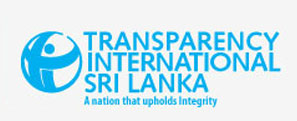04 Sep 2012 - {{hitsCtrl.values.hits}}
 Transparency International Sri Lanka (TISL) yesterday called upon the government to take necessary actions to resolve the present situation at the Securities and Exchange Commission (SEC) in a manner that will not negatively impact on market confidence.
Transparency International Sri Lanka (TISL) yesterday called upon the government to take necessary actions to resolve the present situation at the Securities and Exchange Commission (SEC) in a manner that will not negatively impact on market confidence.
27 Dec 2024 9 hours ago
27 Dec 2024 9 hours ago
27 Dec 2024 27 Dec 2024
27 Dec 2024 27 Dec 2024
27 Dec 2024 27 Dec 2024